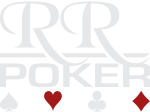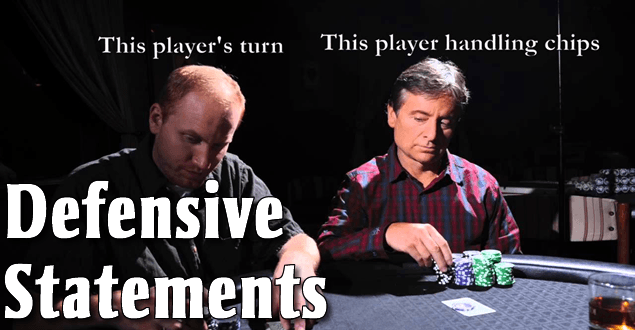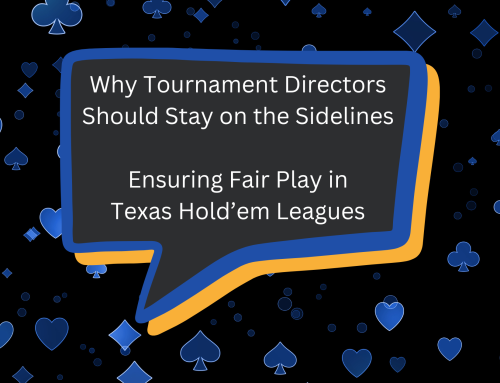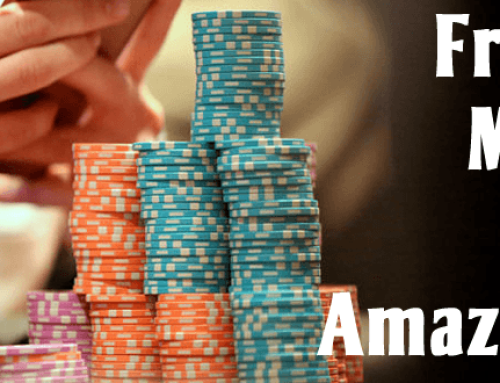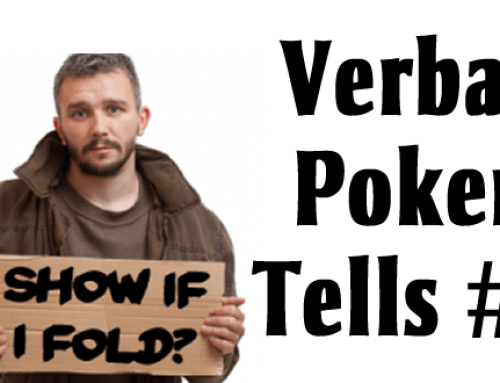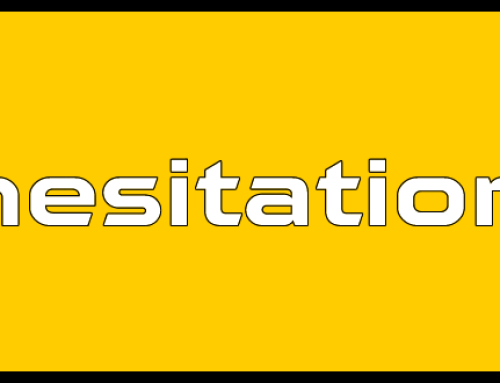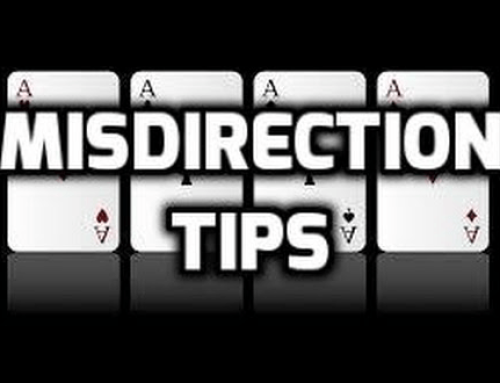Non-aggressor Speech
I sometimes separate behavior into coming from either the aggressor (the bettor/raiser) or the non-aggressor (the player checking or calling). This separation helps us better understand how different behaviors will often mean different things, depending on the player’s place in the hand and the surrounding situation.
One of the major things that Zach from Reading Poker Tells found while researching his book Verbal Poker Tells, was that, almost entirely, talking from the non-aggressor in the hand was equated with weaker hands. In other words, most talking heard from non-aggressors was defensive in nature.
Why would this be? It’s because non-aggressors with strong hands want their opponents to continue betting. They don’t want to present any obstacles to action. This is why these non-aggressors with strong hands are almost always quiet.
One quick example, so you can see what I mean. A player calls a pre-flop raise with 33. The flop comes K-7-3. The player checks his set, waiting for the pre-flop raiser to continuation-bet. The player with the set has a motivation to just remain quiet and let his opponent bet; he doesn’t want to say something (no matter what it is) that might discourage a bet (either on this round or subsequent rounds).
Once we understand that motivation, the talking of non-aggressors with weak hands makes more sense. These players have no incentive to avoid talking. They may even have a motivation to say something to try to discourage a bet or slow down an opponent (e.g., the “Be careful” statement).
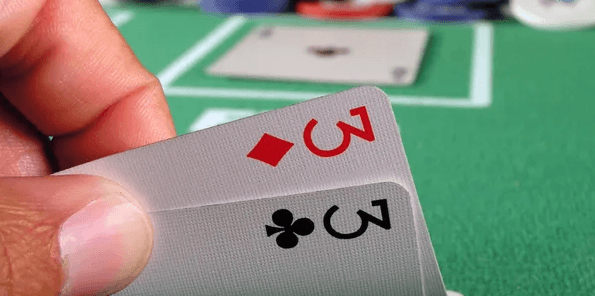
Sometimes these players have no real disincentive to avoid talking because they know they’re going to be folding to a bet anyway, so they figure they might as well just say something, no matter what, since it doesn’t matter. For example, a player calls a pre-flop raise with 33, and the flop comes AK8. He checks and says, “Don’t bet, you’re not getting any more money from me.” He doesn’t much care about remaining stoic because he thinks it doesn’t matter, since he’s folding anyway.
Practical Application
What are the practical applications of spotting genuine defensive behavior? Recognizing when players are actually weak can:
- Encourage you to bluff
- Encourage you to slowplay a big hand (if you think they’re folding to a bet)
- Encourage you to alter your bet-sizing to try to get a call from a weaker range
Examples
$1-3 NLHE cash game, submitted by Dave Ferrara
A player 3-bets and then gets 4-bet. It’s heads-up to the flop. Both players started with somewhat deep stacks of $500.
The flop is K♦ 6♦ 4♥. The pre-flop 4-bettor bets $80 into the $120 pot.
His opponent says, “Wow; you can beat ace-king?”
This player eventually makes the call, saying, “Well, I guess I’m going down with the ship.”
If the speaker actually had a very strong hand, like AA or a set, do you think he’d want to make a statement that might set up an obstacle to his opponent continuing to bet the turn or call a raise? A player who wants his opponent to continue betting or calling doesn’t want to present any obstacles to action. (This is especially true when the pot is still small.) This is one major reason why so many non-aggressor statements are found to be defensive, simply because players slow-playing strong hands will usually be quiet.
Results: The speaking player had J♦ J♣.
Poker After Dark, high stakes NLHE cash game, S4 E39, ~33:00
The river board is A♣ J♦ 2♦ Q♠ 6♥.
Dee Tiller checks to his opponent and asks, “Two pair any good?” His opponent bets $21,000 into a pot of $27,800.
This is a common type of defensive statement made by recreational players. Even when such statements are said seemingly in jest, they will still often be genuinely defensive.
Results: Tiller has K♦ J♣, for a pair of jacks. He folds.
Heartland Poker Tour NLHE tournament, Canterbury Card Casino, 2012
Gary Lambert is first-to-act on a river board of 7♦ 6♥ 5♣ 2♣ 5♥.
Lambert says, “I could bet, but I’m going to check.” Then he checks.
This is a strong-hand statement that seems almost too transparently defensive. But many defensive statements heard from recreational players will actually be this obvious.
Results: His opponent checks behind. Lambert has A♦ 2♠, for a pair of 2s.
High Stakes Poker, high stakes NLHE cash game, S4 E9, ~17:00
On a turn board of Q♠ T♣ 2♥ 6♣, Sam Farha bets $25,000 and Jamie Gold raises to $75,000.
As Farha calls, he says, “You can’t bluff a loser, buddy, that’s all I got to tell you… Beat my pair, you got it. I check dark.”
Gold: “I’m probably gonna check but I’m not yet–”
Farha: “No. Bet in the dark.”
Results: The river is the 5♠ and Gold checks behind. Farha has 9♠ 9♦; just a pair of 9s. Gold wins with A♥ Q♦.
This is a case of Farha making a weak-hand statement (“Beat my pair, you got it”) in a defensive way. He knows that this will likely make Gold cautious because Gold will likely think, “If he’s implying he only has a pair and he’s calling me, he is probably stronger than one pair.”

Observation from Peter Heyneman
This comment is from poker player Peter Heyneman:
“One very bad player I know from local games always says ‘Careful!’ with a big hand. So on more than one occasion I’ve overbet with the nuts after he’s said that, confident that he’ll reraise, having ‘tricked’ me into betting.”
This anecdote reinforces the idea that the most common defensive statements are not as meaningful. (This is generally true: the most common, frequently-heard behaviors are less meaningful, just because players have heard them more and understand their most common meanings.) Also, this observation reinforces the importance of correlating behavior with specific players before having a lot of confidence in a read.
src: readingpokertells.com
